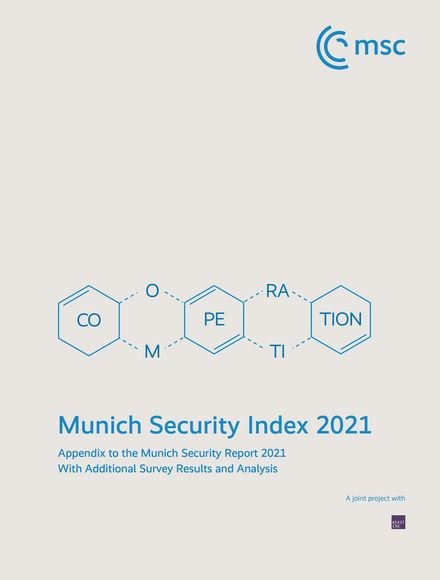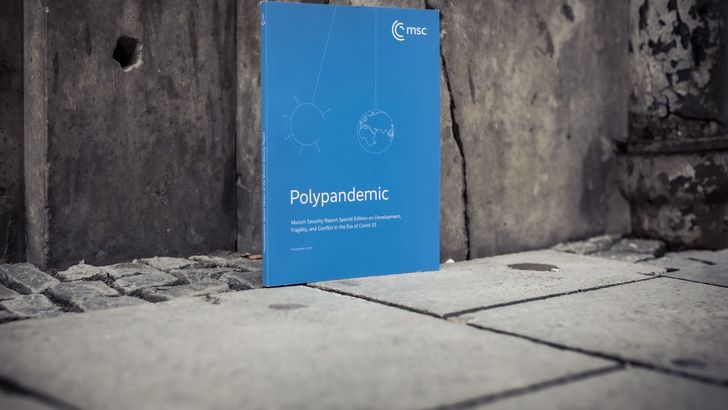

Munich Security Index 2021
How do states with decisive influence in the global realm view each other and core global risks? By presenting exclusive data on perceptions of risk that pervade the societies of G7 and BRICS countries, our new Munich Security Index provides unique insights into the scope for interstate cooperation on shared global threats as well as into the patterns of cooperation and competition that are shaped by how societies perceive each other.
In an era defined by geopolitical competition and mounting global threats that can only be addressed in cooperation, it is important to assess and compare how people in different parts of the world view some of the most critical global security risks. To this end, the MSC and Kekst CNC together have built a new dataset on global risk perceptions: the Munich Security Index. By combining five metrics – from the severity of a risk to its likelihood of developing, from the imminence of a risk to whether it is looming larger or receding – and based on a survey conducted among 12,336 people globally, the index provides an in-depth view of how G7 and BRICS nations view risk in 2021.
The Munich Security Index shows that global risk perceptions are highly diverse, suggesting that efforts to jointly tackle the most serious threats to humanity will not face an easy environment. The overall picture painted by the index is one of fragmentation in the West and of parochial risk perceptions elsewhere in the world. If there is something akin to a global consensus on risk, it revolves around climate and the environment. And while the extent of this concern varies across the twelve countries surveyed, a majority of all respondents seem to see China as a major risk.
The Munich Security Index is the latest addition to our annual Munich Security Report (MSR). Future editions will closely monitor how risk perceptions in core countries evolve, how they are affected by emerging security threats, and how they are shaped by competition and cooperation among states.



